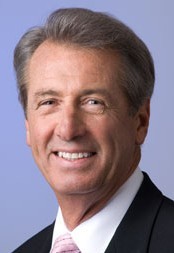Barbara and Kevin’s First, “He Said, She Said”
Read our tips in our next post to find out how to be an empowered health consumer!
 She Said – Barbara
She Said – Barbara
Health Information – Confusing?
I think most of us feel that there is so much health information circulating the web, in print and on TV that it can often be confusing.
Major news networks may have the best intention to provide solid information, but there are times when even the major networks can give confusing information.
I’m a bit puzzled over a recent article I read on CNN by senior medical correspondent, Elizabeth Cohen, “Some doubt hand washing stops H1N1.”
Cohen writes,
“A spokesman for the Centers for Disease Control and Prevention agrees there isn’t strong evidence that hand washing fights H1N1.
“We don’t have solid data on the effect that hand washing has on the transmission of H1N1,” CDC spokesman Tom Skinner wrote in an e-mail.” [Source: CNN]
I’m confused, since the CDC clearly states on their website that hand washing is recommended to fight the flu.
It’s stated on the page titled, “ Questions & Answers 2009 H1N1 Flu (Swine Flu) and You,” to wash your hands often.
I think the wrong message is being sent here. Most health experts and health organizations would agree that hand washing is a critical step to prevent the spread of infection, and to fight the swine flu.
Organizations & Associations that Encourage Hand Washing
The World Health Organization (WHO) strongly recommends hand washing with soap and water. In their report, “What the General Public Must Know About Pandemic Influenza H1N1 2009, it provides information about hand washing to avoid becoming infected.
The American Academy of Pediatrics (AAP) provides tips on their “H1N1 Flu (Swine Flu) Information” page, on how to prevent the spread of germs, which includes the importance of hand washing.
The Mayo Clinic recommends washing your hands thoroughly and frequently to prevent the swine flu.
The U.S. Department of Health and Human Services (HHS) teamed up with the popular children’s show Sesame Street to help fight the swine flu. In the public services announcement, Kathleen Sebelius, Secretary U.S. Department of Health and Human Services, Gordon and Elmo help spread the word about the importance of hand washing!
I could go on and on and list additional organizations and associations that encourage hand washing to prevent the swine flu.
What’s Up?
I’m puzzled as to why a government health official would now say that hand washing may not be effective to prevent H1N1, and why are our public health experts trying to confuse us?
We are reading all the time about how flu infections are spreading in schools from one person to another. Maybe the problem is that kids are not covering their mouths properly when they cough or sneeze and are not washing their hands properly.
I’m wondering how many kids in school are properly washing their hands. My guess is that most kids are not washing their hands the right way. It should take between15 and 20 seconds—it’s like singing happy birthday twice. For anyone that has ever watched kids wash their hands—it’s more like 5 seconds and with any luck they’ll use soap.
Bottom Line
It’s really important to gather your health information from various sources. Obtaining health information from one source may prove inadequate. Read tips on how to be an empowered health consumer in our next post. Now, He Said…
 He Said – Kevin
He Said – Kevin
The general public and health care professionals don’t know what to believe anymore.
We have been told for years that eggs were bad for your cholesterol, but now we learn that they are not bad at all when eaten in small amounts.
Alcohol is bad but now we know that one or two glasses of red wine a day may actually reduce your risk of heart disease.
What are we to believe and who are we to trust?
The reason for my question – debate has erupted over the efficacy of washing one’s hands to prevent being infected with viruses in general and the H1N1 virus in specific.
Some health authorities say evidence is weak that hand washing will significantly ward off infection, noting that a person is more likely to contract the virus from nearby contaminated persons sneezing or coughing, which releases the virus in water droplets into the air that are easily inhaled.
Frankly, these statements do nothing but confuse the average person and they just don’t pass the smell test for me. Even if there is no clinical study proving this point, let’s use some common sense here.
Just think about this a minute. Diseases/viruses are spread in three main ways –
- Coughing droplets in the air and someone inhales them.
- Viruses deposited on inanimate surfaces (desks, phones, counters, doorknobs, etc.)
- Touching your hands to your face, nose and mouth with the virus on them.
By washing your hands, you effectively lessen or remove the virus from your hands so that you can’t deposit it on inanimate surfaces and you don’t transfer it to your face if you do pick it up somewhere else.
Years ago, Dr. Ignaz Semmelweis proved that infections could be drastically reduced in patients when surgeons washed their hands thoroughly and carefully. Do we really need another study to prove the benefit of hand washing? Clearly, we do not.
What we need is a dose of common sense from some of our public health experts to keep us all from being confused.
Coming up next, “How to be an Empowered Health Consumer.” Read Barbara and Kevin’s tips.

2 Comments
Leave a reply →